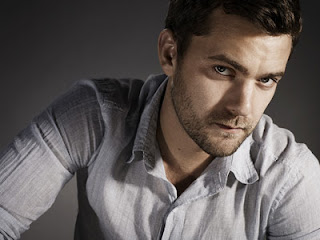
I was reading a review of Charlie Kaufman's first film as writer/director,
Synechdoche New York (which I'm glad is spelt phonetically on the posters because otherwise I'd be a wee bit unsure how to pronounce) and saw Jennifer Jason Leigh among the credited cast. Then I though, where has she gone to? Is she busy mothering her babies with Noah Baumbach in what one can only hope is a better environment than what we're led to believe Daddy Baumbach grew up with? Does Hollywood not want her anymore? Is it her age (47)?
After an eye-catching, body-ripping turn in road movie-cum-horror classic
The Hitcher in 1985, Jennifer clocked up a string of critical and commercial successes in the early 90s. Roles as diverse as prostitute Tralala in
Last Exit To Brooklyn, as writer and poet Dorothy Parker in
Mrs. Parker and the Vicious Circle and psychotic roommate Hedy Carlson in
Single White Female showed her range. She also got to work with some on the 90s most respected auteurs, Robert Altman in
Short Cuts and
Kansas City, the Coen brothers in
The Hudsucker Proxy and David Cronenburg in
eXistenZ. Possibly my favourite JJL performance, and one that seems to have passed a lot of people by, is the emotionally scarred Selena St. George in
Dolores Claiborne, easily one of the best Stephen King adaptations and featuring a trio of fantastic female performances from Leigh, Kathy Bates and Judy Parfitt.
So what happened? She didn't exactly disappear off the face of the earth, but after
The Anniversary Party (a film she wrote and directed with friend Alan Cumming) met to a mixed reception in 2001, JJL seems to have been offered smaller and smaller roles, despite the fact that she's a proven leading lady and a talented character actor. Her supporting roles in the 00s have been unfortunate, collaborations with good directors who pick Leigh to star in a not-terribly-good film. Small roles in
Road To Perdition (I know there are plenty of admirers out there but Paul Newman and Conrad Hall's cinematography aside, I found this a particularly vacuous movie),
In The Cut and
Palindromes went largely unnoticed. Likewise, JJL's performances in independent films
The Machinest and
The Jacket were ignored, with most of the attention going to Christian Bale's emaciated lead and a confusing, twisty plot respectively. Both Brad Anderson, director of
The Machinest, and John Maybury, director of
The Jacket, has produced fine, interesting work previously, notably
Love Is The Devil, so it's easy to see why Leigh chose to work with them. But something didn't click.
Likewise, her return to leading lady, alongside Nicole Kidman in
Margot At The Wedding (directed by her husband Noah Baumbach), didn't quite meet expectations. Both Kidman and Leigh are on fine form, but Jack Black is hopelessly miscast as Leigh's dopish husband, and the dialogue feels too arch, the family dynamics too fucked and the characters even more unlikeable than in Baumbach's previous film
The Squid And The Whale. Not that any of these things are necessarily indicative of a poor film, but they might go some way to explain its poor performance at the box office and the lack of award nominations.
According to Wikipedia, Leigh has turned down an impressive selection of roles, including
sex, lies and videotape,
Pretty Woman,
Boogie Nights and
LA Confidential. She was also considered for the role of Catwoman in
Batman Returns, Ada McGrath in
The Piano and Sarah Connor in
The Terminator. Any one of these films could've consolidated her fame and given her the star quality that she clearly deserves but perhaps doesn't want or need.


































